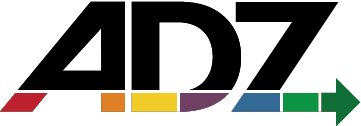- mentor
- trainer
- facilitator
- change agent
- consultant
- advisor
- friend
“Our team is going Agile,” “where are you on your Agile journey,” and “what is the most important Agile metric,” might be some things you’ve heard or thought about lately. The answers to these and the many other questions or descriptions we’ve heard in our many adventures across various organizations and enterprises have been at times confusing, at times contradictory, and sometimes even quite amusing. Regardless of the scale of the problem you’re trying to solve, there can be an overwhelming amount of information to parse once you start pulling on a thread. Many coaches specialize in a particular methodology or framework, and can help you solve specific problems. The best coaches however, are comfortable with many, are attached to none, and will freely adapt to what arises in the moment.
What do our Agile Coaches do?
Our coaches are subject matter experts with broad experience across many different companies and industries. Our coaches have a wide breadth of backgrounds and skill sets, and can help teams and programs in a variety of ways, but there are some functions you can expect from any coach.
As a transformational consultant: To design a roadmap for organizational transformation that scales
- Identify and map Operational Value Streams to Strategic Themes
- Identify the highest value products within the Value Streams
- Map development value streams for all products (where and by whom are they being built?)
- Eliminate/reduce waste and redundancy across delivery
- Reorganize around optimizing the flow of value through the system
- Cross train component teams to achieve greater cross functionality where appropriate
As a trainer: To increase agility by building knowledge
- Provide training and workshops to the teams, the business, shared services, and stakeholders on Agile values and practices.
- Formal training, workshops to improve skills (such as User Story Writing, Story Splitting, Estimating, Agile Engineering Practices) and training on targeted topics for continuous improvement.
As a Facilitator: To increase collaboration
- Facilitate Vision, Roadmap and Release Planning sessions with the business and the teams
- Help with creation of a Product Vision and Roadmap and Release Plans that will fulfill the Vision
- Facilitate various Scrum/Kanban events so the team can see the technique in action
- Facilitate meetings with leadership and stakeholders throughout the organization to influence change, remove impediments and identify opportunities to improve efficiency
As a change agent: To remove impediments
- Arbitrate with conflicts and difficult decisions that impact the forward movement of the Agile initiative
As a consultant: To optimize productivity
- Help with overall planning by providing various ideas, suggestions and strategies.
- Help with creating, capturing and communicating the right metrics to show successes and opportunities for improvement
- Continue to provide a guiding hand to the team and organization on practices that support Agile values through observation and just-in-time coaching
- Make recommendations for improvements from an invested, experienced, 3rd party perspective without preconceived notions or bias about your organization.
As a Mentor: To build and sustain internal capabilities
- Focus on people and continuous improvement by being engaged, authentic and dependable
- Be a trusted counselor and advisor
- Create a safe environment for healthy conflict and meaningful collaboration
- Provide a platform for improvement not only during the retrospective but all the time
- 1:1’s/mentoring sessions with Scrum Masters and Product Owners to improve specific skills
- 1:1’s/mentoring with team members and stakeholders



